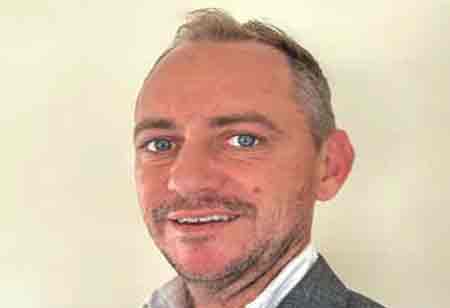

I agree We use cookies on this website to enhance your user experience. By clicking any link on this page you are giving your consent for us to set cookies. More info
Thank you for Subscribing to Business Management Review Weekly Brief

Greg Shivnan joined Ritchie Bros. in New Zealand two years ago and quickly became the driving force behind the company’s market entry in the region. Arriving with no facility, local team or infrastructure, he saw an exciting opportunity to build something unique from scratch. Early on, his leadership shone through when he orchestrated a major liquidation auction with AH Construction, moving around 300 assets and generating nearly $10 million in gross transactional value (GTV). That breakthrough auction not only put the Ritchie Bros. on the map but also set the stage for what would come.
At A Glance:
● Starting something from scratch is never easy, but it’s also where the real opportunity lies.
● We’re not limited to the local market—many of our assets go offshore, which opens up more opportunities for sellers when things are tight at home.
● The real value isn’t just in what you sell. It’s in how well you understand your customers and the everchanging landscape in which they operate.
● You’ve got to take a genuine interest in the person behind the business, what drives them and what challenges they face—not just what you can get out of the relationship.
Now, as the Territory Manager for Ritchie Bros. in New Zealand, Greg has built a strong, closeknit team of five and helped grow the business to over $25 million in annual GTV. He’s known for his customer-first mindset, sharp negotiation skills and deep industry knowledge. This year’s early results—over AUD $5 million in Q1 alone—show how far his dedication has taken the business. In an interview with Business Management Review, Shivnan emphasizes his experience as a territory manager and explores how strong leadership and a people-first approach can create real momentum, even in challenging economic conditions.
Guiding Clients Through Economic Headwinds
New Zealand’s economy is feeling the strain right now, especially in the civil sector. Companies are doing it tough, people are still waiting to be paid and for many, it’s a daily battle just to stay afloat. That’s where the job becomes more than just business for me. A big part of what I do is helping clients in tight situations get as much value as possible from their assets so they can take the next step forward.
Sometimes that means negotiating hard. Other times, it’s about thinking outside the box to structure a deal that works for everyone. There’s no one-size-fits-all. Every case is different, and you’ve got to be hands-on and ready to adapt.
What sets Ritchie Bros. apart is our global footprint. Our global footprint means sellers can tap into international demand—opening more doors when local markets slow down.
We’re not boxed into the local market— our reach means equipment can be sold offshore, which gives sellers more options and better chances of a return when things are slow at home
Another big piece of the puzzle is managing expectations. During COVID, equipment prices were inflated because of supply chain issues. Now that things have settled, the market has corrected—but not everyone has caught up to that shift. That’s where honest conversations come in. You’ve got to guide people based on where the market is now, not where it was.
At the end of the day, it’s not just about moving machinery. It’s about helping people navigate uncertainty—and finding outcomes that actually make a difference.
Reading The Shifts: How Flexibility Fuels Growth
There was a lot of hope riding on New Zealand’s recent change in government. Many were expecting a surge in infrastructure investment—a wave of civil projects to jumpstart the economy.
But the reality? The money just isn’t there. The volume of work people was counting on, especially in the civil space, simply hasn’t come through.
In times like this, it’s all about knowing when—and where—to pivot. We’re starting to see green shoots in other sectors. Agriculture is showing signs of life again. Dairy’s bouncing back and farmers are starting to open their wallets, which is a welcome shift. The thing about New Zealand’s economy is that it’s seasonal. Winter slows everything down, particularly civil work, where heavy rain can bring projects to a standstill. But agriculture? That keeps ticking along.
Looking ahead, October usually signals the start of the earthmoving season. There’s been talk of large-scale projects finally getting off the ground, which could swing momentum back toward civil and transport. If that happens, we’ll need to be ready to move fast.
That’s how we stay ahead by listening to the market, staying sharp, and being prepared to lead through the unknown. At the end of the day, it’s not just about selling equipment. It’s about understanding your customers, reading the shifts and delivering value when and where it matters most.
Key Advice: Long-Term Wins Come From Long-Term Trust
A big part of this job is simply listening to your customers. Understanding what they need, what they’re worried about and what they’re trying to achieve. And then being honest with them. Even when the conversation’s tough, you can’t shy away from the truth.That kind of honesty is what builds real trust.
Over time, that’s how you stop being just another contact and start becoming a trusted advisor. But to get there, it takes more than just business smarts. You’ve got to care about the person behind the business. What drives them, what keeps them up at night? In this industry, relationships come first. Build them right, and the business follows.